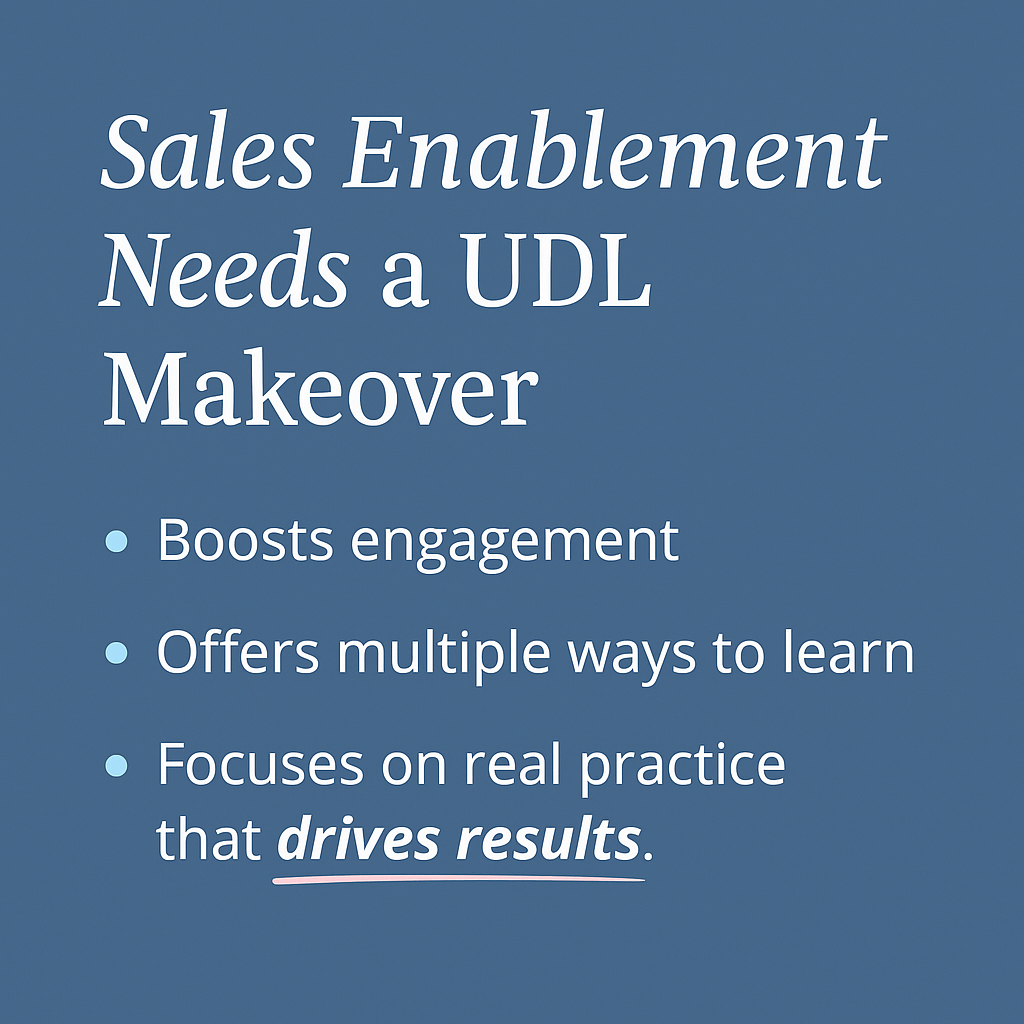
Corporate Enablement
Smarter Training. Stronger Teams. Scalable Results.
Your sales, onboarding, and professional development systems shouldn’t just "check the box" - they should change behavior, inspire confidence, and actually work.
At Growing Minds Consulting, we bring the same research-based principles that make schools more inclusive and effective - Universal Design for Learning (UDL), adult learning theory, and clarity-driven strategy - to corporate settings. Why? Because your teams are just as diverse, and variability doesn’t disappear in adulthood. We help you design scalable, inclusive, and results-focused systems that meet people where they are and take them where they need to go.
Whether you're rethinking how you train sales reps, onboarding new hires, or equipping managers with stronger coaching skills, we help you ditch the one-size-fits-all playbook and build a system that actually sticks.
Our Corporate Enablement Offerings Include:
UDL for Sales Enablement
Your sales team is full of variability: different backgrounds, different strengths, different learning needs. Yet most sales enablement materials still treat them like identical robots in matching polos. Let’s change that.
We apply UDL principles to transform your sales training into a flexible, inclusive system that boosts retention, clarity, and performance. You’ll walk away with:
Modular, just-in-time training content for different learning preferences
Tools and templates that support ongoing coaching and feedback
Enablement systems that adapt to new hires, tenured reps, and everyone in between
Inclusive Onboarding & Training Design
First impressions matter. We help you design onboarding that makes every new hire feel capable, connected, and confident from Day 1; no matter their background or learning style.
Our approach includes:
Designing learner-centered onboarding experiences that reflect company culture
Embedding clarity and purpose into every step
Offering scaffolds, supports, and flexibility to reduce overwhelm and promote confidence
Culture & Development Strategy
Training alone won’t transform a team. Culture eats strategy for breakfast - and you need both. We help you cultivate a learning culture where feedback is welcomed, variability is expected, and leadership is developed at every level.
We support:
Strategic planning for internal L&D teams
Leadership development grounded in cognitive science and equity
Designing clear growth pathways for employees at all levels
💡 Why It Works
Because it’s built on what works. UDL gives your company a science-backed framework for making your learning and development programs more inclusive, more effective, and more sustainable. We’ve seen this work in classrooms, boardrooms, and training rooms across the country.
📅 Ready to Work Together?
We offer:
Live virtual or on-site workshops
Strategy sessions with enablement and HR teams
Custom coaching for trainers and managers
Audits and redesign of your current onboarding and training materials
Let’s reimagine learning at work.
Because variability doesn’t disappear at the office door.


